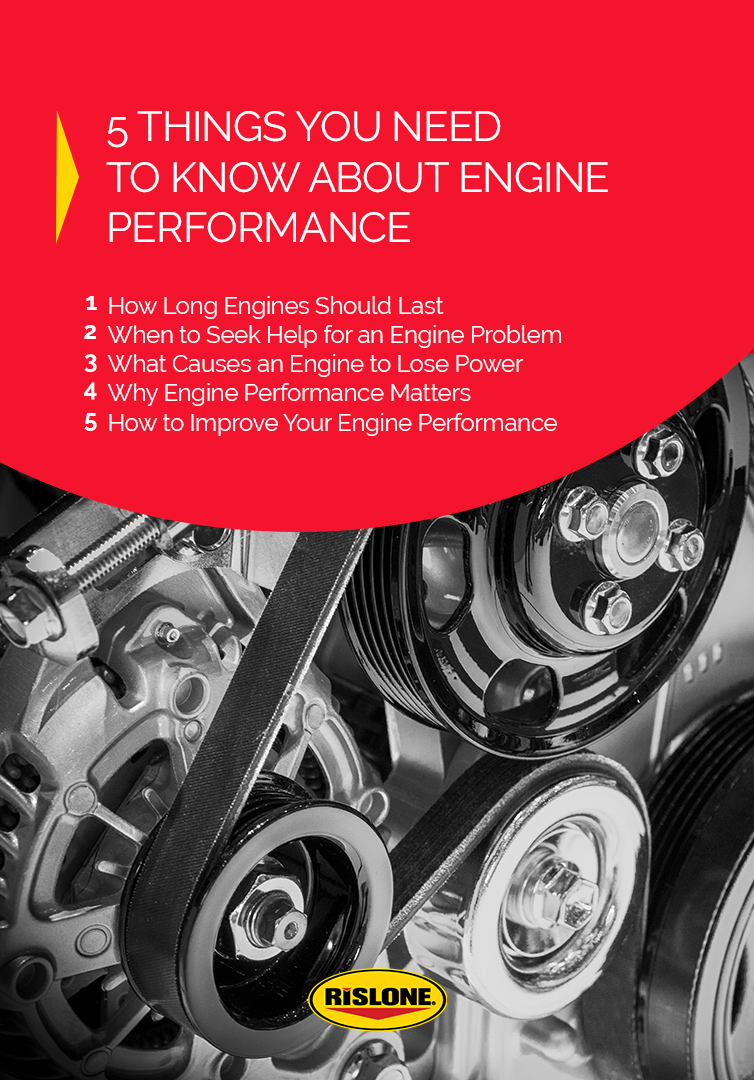How To Improve Engine Performance Safely
Once considered the heart of a car, an engine’s performance can be greatly enhanced with just a few precise tweaks. There is a captivating story behind every customized engine, where even the slightest modifications can lead to significant benefits. An intriguing statistic reveals that even a well-balanced tire can contribute to better engine performance by reducing strain, reminding us that what might seem a small step can indeed lead to prominent impacts.
When it comes to improving engine performance, it’s important to remember that safety needs to be prioritized. Historically, enthusiasts have turned to fuel and air intake modifications as a reliable strategy, ensuring the engine runs efficiently and remains responsive. A compelling fact: studies indicate that synthetic oils can add a surprising 5% increase in engine efficiency. This practical solution not only protects the engine but also enhances its longevity, serving those who value sustainable performance improvements.
- Regularly schedule maintenance and tune-ups to keep your engine in top condition.
- Upgrade air intake and exhaust systems for better airflow and efficiency.
- Use high-quality fuels and oils to protect engine components.
- Install performance chips carefully to optimize power output safely.

How to Improve Engine Performance Safely
To safely boost your engine’s performance, start by sticking to regular maintenance. Schedule tune-ups which include checking spark plugs and replacing air filters. This not only ensures the engine runs smoothly but also helps in detecting potential issues early. Combining these practices helps maintain the engine’s efficiency. Regular maintenance helps prolong the life of your vehicle too.
Upgrading the air intake system is another effective way to improve performance. A better intake system ensures more air reaches the engine. Consequently, this results in more efficient combustion and power. Opt for a high-flow air filter which is made to increase air capacity. With a cleaner system, your engine breathes easier, improving overall performance.
Installing performance chips can optimize your engine further. These chips adjust various parameters to enhance efficiency and speed. However, it’s crucial to choose chips that match your car model. Some chips might void the warranty, so read the fine print. When done right, these chips offer noticeable improvements in engine behavior.
There’s more to engine performance than just power; consider fuel quality. Using high-quality fuel can significantly impact how your engine functions. Opt for premium fuels that contain cleaning agents. Higher-quality oils reduce friction and protect the engine from wear. Investing in quality fuel and oil contributes to long-term engine health, making your car more reliable.
Step #1: Regular Maintenance and Tune-ups
Regular maintenance is essential for keeping your engine in top shape. It includes checking oil levels, replacing spark plugs, and inspecting belts and hoses. Performing these simple tasks ensures your engine runs smoothly. It helps in spotting potential issues early, preventing costly repairs later. Keeping everything in check boosts the engine’s lifespan.
Tune-ups are also crucial for maintaining engine performance. During a tune-up, your car’s ignition system is fine-tuned. Mechanics check and replace worn parts. Common parts to replace include spark plugs and distributor caps. This ensures your engine burns fuel efficiently.
Regular oil changes play a vital role too. Clean oil reduces friction inside the engine. This keeps the engine running smoothly and efficiently. Make sure to use the oil recommended by the manufacturer. Sticking to a routine schedule keeps your engine happy.
You can manage these tasks in a routine checklist.
- Check and change engine oil
- Inspect air filters
- Replace spark plugs
- Inspect belts and hoses
- Check coolant levels
Following this list helps maintain engine performance. Prioritizing these simple checks ensures long-term benefits, keeping your engine running efficiently.
Step #2: Upgrade Air Intake Systems
Upgrading your car’s air intake system can noticeably enhance performance. A new air intake improves airflow, which means the engine can breathe better. With more oxygen, combustion becomes more efficient. This results in increased power and acceleration. It’s a straightforward modification with big benefits.
There are different types of air intake systems you can choose from. Each type offers unique benefits depending on your needs.
- Cold Air Intakes: Draw cool air from outside the engine bay.
- Short Ram Intakes: Provide a shorter path for air to reach the engine.
- Ram Air Intakes: Designed to collect more air at higher speeds.
Selecting the right one enhances specific aspects of engine performance.
Installing a high-performance filter is another key part of the process. These filters trap dirt and debris more effectively than standard ones. They improve engine longevity by protecting it from harmful particles. High-performance filters are also often reusable. Cleaning instead of replacing reduces waste and saves money.
When upgrading your air intake system, consider professional installation. Although the process seems simple, expertise ensures parts fit correctly. Incorrect installation could lead to air leaks or reduced performance. Consulting a professional provides peace of mind. With proper installation, your engine benefits from optimal airflow.
Step #3: Optimize the Exhaust System
Optimizing the exhaust system can significantly boost engine performance. The exhaust system’s main job is to expel the gases produced during combustion. By allowing these gases to exit more quickly, the engine can breathe better. This leads to improved power and efficiency. It’s like giving your car a clear path to run faster.
A high-performance exhaust system generally includes headers, pipes, and a muffler. Each part plays a crucial role in overall function.
- Headers reduce back pressure, allowing exhaust gases to exit faster.
- Aftermarket pipes are usually wider and straighter for enhanced flow.
- Mufflers designed for performance minimize noise while optimizing airflow.
Choosing the right components maximizes gains.
Material choice in exhaust system upgrades matters too. Stainless steel systems are a popular choice for their durability. They withstand rust and are less prone to corrosion. This ensures your exhaust system lasts longer, enhancing engine performance. Investing in quality materials pays off over time.
Installing an optimized exhaust system might seem challenging. But professional help ensures proper fitting and function. Experts have the tools and knowledge to make sure everything works as it should. Correct installation avoids leaks and maximizes performance benefits. It’s always wise to leave it to the pros if you’re unfamiliar.
Lastly, consider regulations when upgrading your exhaust. Some systems might be louder than legal limits allow. Make sure to choose options that comply with local noise regulations. This keeps your car road-legal and neighbors happy. Maintaining legality while optimizing performance is essential.
Step #4: Use High-Quality Fuel and Oil
Choosing high-quality fuel and oil is essential for optimal engine performance. Good fuel ensures that the engine runs smoothly and efficiently. Premium fuels often contain additives that clean and protect the engine. These additives help reduce carbon deposits, enhancing combustion. Better combustion contributes to more power and better mileage.
High-quality oil plays a significant role in maintaining engine health. Oil lubricates the moving parts, reducing friction. Less friction means less wear and tear on the engine components. It also helps in cooling the engine, preventing overheating. Using the right oil, recommended by your car’s manufacturer, extends engine life.
Luckily, the benefits of using premium fuel and oil are measurable.
- Increased fuel efficiency
- Better engine protection
- Longer engine lifespan
- Reduced emissions
Each benefit adds to the overall performance and health of the vehicle.
Switching to high-quality products doesn’t have to be hard. While premium options can be a bit pricier, their long-term benefits often outweigh the costs. Over time, they can prevent costly repairs and extend your car’s lifespan. Consider it an investment in your vehicle’s future. By treating your engine well, it rewards you with better performance.
Step #5: Install Performance Chips and Software Upgrades
Performance chips and software upgrades can transform how your engine behaves. These upgrades tweak the car’s computer to enhance power and efficiency. By adjusting parameters like fuel mixture and timing, they unlock hidden potential. This fine-tuning can give your car extra horsepower. It’s a way to boost performance without changing physical engine parts.
Installing performance chips is often straightforward with the right tools. These chips are typically plugged into the vehicle’s onboard computer system. Nonetheless, you need to ensure compatibility with your car model. Each car has specific requirements that must be met. Carefully follow installation instructions to avoid issues.
Software upgrades can be just as beneficial. The updates are often done through a dedicated tuning device. These devices adjust settings to optimize fuel efficiency and engine response. Some upgrades can even be downloaded from trusted online sources, making the process seamless. It’s like giving your car a smarter brain.
Performance chips offer an array of benefits.
- Increased horsepower
- Better throttle response
- Improved fuel efficiency
- Enhanced torque output
Each advantage contributes to a more exciting driving experience.
However, it’s vital to consider any effect on the warranty. Some manufacturers might void warranties if chips or software adjustments are installed improperly. To help with this, consulting with a professional or experienced installer is recommended. This leads to safer installation and keeps your warranty intact. Make informed decisions for best results.
Choosing the Right Modifications for Your Vehicle
Selecting the right modifications requires understanding your vehicle’s specific needs. Every car is unique, boasting individual characteristics and capabilities. When upgrading, consider the type of driving you do most often. For daily commutes, fuel efficiency might be a priority. In contrast, weekend racers might seek speed or handling improvements.
Your budget plays a crucial role in determining which upgrades are feasible. Modifications can range from inexpensive tweaks to major overhauls. It’s essential to set a realistic budget and stick to it. Some upgrades provide great value for money, offering noticeable benefits without breaking the bank. Think critically about your needs versus wants.
Before making changes, research each modification’s compatibility with your vehicle model. Not all parts fit every car, and using incompatible products could cause problems down the road. Check with manufacturers or trusted auto professionals if unsure about compatibility issues. This ensures effective installations that enhance rather than harm performance.
Considering pros and cons helps make informed decisions.
- Pros: Enhanced performance, improved aesthetics
- Cons: Possible warranty impact, increased cost
Evaluating each aspect lets you weigh benefits against potential downsides confidently.
Diving into reviews from other car enthusiasts can provide valuable insights too. Online forums often feature community members sharing their experiences with various upgrades. Reading these reviews may highlight hidden gems or red flags about particular mods you had in mind previously! Fellow drivers’ stories contribute useful perspectives when deciding.
Safe Practices for Engine Testing and Optimization
Testing and optimizing your engine is a chance to fine-tune its performance. Start by ensuring a safe environment. Make sure the car is in a well-ventilated space to prevent harmful fumes. Working in a garage? Always keep the door open or use fans to circulate air. This simple step can prevent accidents.
Before testing, inspect all components of the engine. Look for any leaks in the hoses, cracks in belts, or unusual damage. Addressing these issues not only makes testing safer but can improve the engine’s overall function. It’s essential to replace or repair faulty parts promptly. Doing this keeps your engine in top shape.
When you conduct tests, using proper equipment is a must. Tools like a diagnostic scanner can help spot issues. Tools provide data like engine temperature and pressure readings. Investing in the right equipment ensures reliable results. With accurate data, you can make informed decisions about needed adjustments.
Evaluating changes through data comparison is beneficial.
- Measure fuel consumption
- Track acceleration times
- Monitor emissions
Record these metrics before and after testing to gauge the impact of modifications accurately.
Consulting professionals provides valuable insights into engine optimization. Mechanics and automotive experts can advise on best practices tailored to your vehicle. They can pinpoint areas you might overlook and recommend efficient solutions. Having an expert’s eye ensures safe testing and optimal performance. It’s always beneficial to seek professional guidance when needed.
Understanding the Impact of Weight on Engine Efficiency
Weight plays a significant role in how efficiently an engine performs. When a car carries more weight, the engine has to work harder. This extra effort consumes more fuel, reducing fuel efficiency. The heavier the vehicle, the more energy needed to move it. Therefore, reducing unnecessary weight can lead to better performance.
There are several ways to reduce a vehicle’s weight for improved engine efficiency. Consider removing items that aren’t needed during daily commutes.
- Clear out excess cargo from the trunk
- Detaching unused roof racks
- Opting for lightweight materials when possible
These simple changes can decrease the load on your engine significantly.
Manufacturers often use lighter materials in vehicle design to enhance efficiency. Materials like aluminum and carbon fiber replace heavier metals. These choices lead to less strain on the engine without compromising safety. This careful balance aids vehicle performance while maintaining structural integrity. The result is a smoother driving experience.
Tire weight also affects engine efficiency. Heavy tires can exert extra pressure, requiring more power to rotate them. Using lightweight tires can improve how the engine functions. They reduce resistance, making acceleration easier. Keeping tires properly inflated also helps in enhancing engine performance.
Keep track of weight distribution within the vehicle to optimize balance. Uneven weight can cause parts to wear unevenly, hurting efficiency. Maintaining equal weight helps the engine work smoothly and reduces unnecessary strain. Simple adjustments can make a marked difference in how the engine operates. Attention to these factors keeps your vehicle running at its best.
Legal Considerations in Engine Modifications
Engine modifications can significantly enhance a vehicle’s performance. However, it’s crucial to understand the legal considerations involved. Many regions have strict rules about what changes are allowed. Violating these regulations can lead to fines or even vehicle confiscation. Always research local laws before making any modifications.
One primary legal concern is emissions standards. Many modifications can affect the pollutants a car emits. Several states require vehicles to pass an emissions test to stay road-legal. Modifications like performance chips may alter these levels, so choose wisely. It’s best to ensure any changes comply with environmental regulations.
Another aspect to consider is noise level regulations. Modifications like new exhaust systems can increase engine noise. Some areas have strict noise ordinances, affecting the legality of certain upgrades. Choosing systems designed to minimize excess sound can help. This keeps your vehicle on the right side of the law.
Insurance coverage can also be impacted by engine changes. When you modify your car, sometimes insurance companies see it as a higher risk. This could mean increased premiums or even a voided policy. Always inform your insurance provider about any modifications. Transparency ensures continuous coverage.
When considering engine modifications, consult a professional. Experienced technicians can advise on what is legal and safe. They can provide guidance on making compliant and effective changes. Professional advice helps avoid legal issues and optimize vehicle performance. Ensuring your car meets all regulations creates peace of mind.
Frequently Asked Questions
Improving engine performance involves understanding various components and practices. Here are some common questions and answers to help guide you through enhancing your vehicle’s performance safely.
What are the benefits of upgrading an air intake system?
Upgrading an air intake system can significantly increase your engine’s efficiency. By allowing more air to reach the engine, combustion becomes smoother, resulting in better power output and fuel efficiency. This upgrade is relatively easy and can be done within a short period.
In the long run, a better air intake also reduces engine wear, contributing to a longer engine life. It’s a simple way to make your vehicle feel more responsive while maintaining overall engine health. Always ensure compatibility with your specific vehicle model when considering an upgrade.
How often should engine oil be changed for optimal performance?
Changing engine oil regularly is crucial for maintaining optimal engine performance. Most experts recommend changing it every 3,000 to 5,000 miles, but this can vary based on your vehicle model and driving conditions. Frequent oil changes help remove engine sludge, keeping the system clean and efficient.
High-quality synthetic oils can improve performance and extend the time between changes. Keep an eye on the oil level and quality using the dipstick and consult your manual for specific guidelines. Regular checks allow you to catch potential issues early and maintain peak engine function.
Is it necessary to upgrade the exhaust system for better performance?
An upgraded exhaust system is beneficial for improving engine performance by enhancing airflow. It reduces back pressure, allowing gases to escape faster, which can boost power and efficiency. These systems often come in stainless steel, offering durability and resistance to corrosion.
Besides performance gains, an upgraded exhaust can improve your vehicle’s sound profile. When choosing an exhaust, consider local noise laws and ensure it is legal for use on public roads. Proper installation is crucial to gain the full benefits and maintain the car’s warranty.
What role do performance chips play in engine optimization?
Performance chips optimize the engine’s computer settings to boost power and efficiency. They adjust fuel mixture, ignition timing, and other parameters, enhancing the engine’s output. This can result in a noticeable increase in horsepower and improved throttle response.
However, it’s important to ensure these chips are compatible with your car’s make and model. Improper installation might void warranties or lead to undesired effects. Always seek professional installation or advice to ensure the chip is set correctly for safe performance gains.
Why is regular maintenance critical for engine health?
Regular maintenance is essential for keeping an engine in top condition. It involves routine checks and replacements such as oil changes, air filter replacements, and spark plug inspections. Addressing minor issues promptly can prevent them from becoming costly repairs.
Consistent maintenance ensures all engine parts work properly together, promoting longevity and performance. It also helps in maintaining fuel efficiency and reducing harmful emissions. Following a routine maintenance schedule is a simple yet effective way to keep your vehicle running smoothly.
Conclusion
Enhancing engine performance safely requires understanding the balance between upgrades and maintenance. By choosing the right modifications, such as upgrades to the air intake, exhaust, and using quality oils, you create a powerful yet stable machine. Regular checks and professional advice ensure these enhancements are both beneficial and compliant with legal standards.
Prioritizing safety and efficiency transforms your driving experience and prolongs engine life. Each choice, from fuel type to performance chips, contributes to overall vehicle health. By following these practices with a careful approach, you can enjoy a car that runs smoothly and efficiently for years to come.


